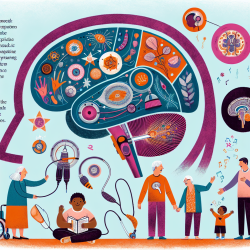Introduction
In the world of speech-language pathology and online therapy, creating effective interventions for children can sometimes feel like navigating a maze. Recent research into Personality Systems Interactions (PSI) theory offers a beacon of hope, providing a comprehensive framework to understand the motivational and volitional dynamics underlying chronic pain. This theory not only enhances our understanding of how individuals adjust to chronic pain but also offers valuable insights for improving therapeutic outcomes for children.
Understanding PSI Theory
PSI theory presents an integrative framework that explains human behavior through the activation of four cognitive systems, each responsible for different psychological functions during goal pursuit. This model emphasizes the importance of emotion regulation in chronic pain management, delineating how the self-regulation of affect impacts behavior. By understanding these dynamics, practitioners can tailor interventions to better support children in their developmental journey.
Applying PSI Theory in Practice
For practitioners, PSI theory offers a roadmap to enhance therapy outcomes. Here’s how you can leverage this theory in your practice:
- Focus on Emotion Regulation: Emphasize strategies that help children regulate their emotions, as this is central to managing chronic pain and achieving behavioral flexibility.
- Promote Goal Adjustment: Encourage children to set realistic goals and adapt them as needed. This flexibility is crucial for maintaining motivation and engagement in therapy.
- Utilize Multimodal Interventions: Incorporate interventions that address both cognitive and emotional aspects of pain, fostering a holistic approach to therapy.
Encouraging Further Research
While PSI theory provides a robust framework, further research is essential to refine its application in speech-language pathology. Practitioners are encouraged to explore how different motivational and volitional processes interact in various contexts, particularly in online therapy settings. By contributing to this growing body of knowledge, you can help shape the future of therapeutic interventions for children.
Conclusion
PSI theory offers a promising avenue for enhancing therapy outcomes by focusing on the motivational and volitional dynamics of chronic pain. By integrating these insights into your practice, you can create more effective, personalized interventions that support children’s development. For a deeper dive into the research, I encourage you to read the original paper: Personality systems interactions theory: an integrative framework complementing the study of the motivational and volitional dynamics underlying adjustment to chronic pain.










